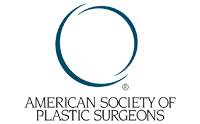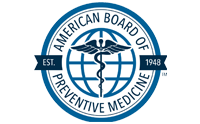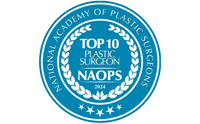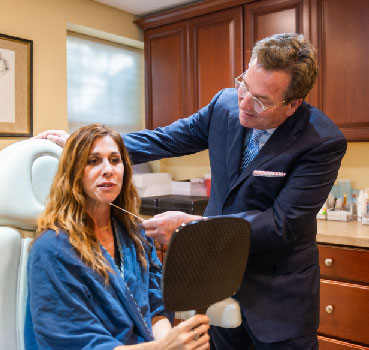Dr. Buinewicz, a triple board-certified plastic, and reconstructive surgeon has over 30 years of experience in performing capsulectomy and other breast surgeries. Dr. Buinewicz is a leader in breast corrective and cosmetic surgery. Buinewicz Plastic Surgery is located in Doylestown, PA and Flemington, NJ, and serves the men and women who live in Hunterdon County, NJ and Bucks County, PA.
Wednesday October 30th | 5:30 PM to 7:30 PM
THE BEST OF BUCKS OPEN HOUSE

Celebrate our 2024 Community Choice
Award for Plastic Surgery & Medspa
- - Hors d'oeuvres and drinks
- - 10% off all BTL treatments and 20% off gift cards
- - Discounted surgery packages and the chance to win raffle prizes valued at $1,500!

Doylestown 3655 Route 202 Suite 225, PA 18902 | 215-647-9668
Wednesday October 30th | 5:30 PM to 7:30 PM
THE BEST OF BUCKS OPEN HOUSE
Celebrate our 2024 Community Choice
Award for Plastic Surgery & Medspa

- Hors d'oeuvres and drinks
- 10% off all BTL treatments and 20% off gift cards
- Discounted surgery packages and the chance to win raffle prizes valued at $1,500!
Doylestown 3655 Route 202 Suite 225, PA 18902 | 215-647-9668
What is a Capsulectomy?
Capsulectomy is a surgical procedure performed to remove the scar tissue or capsule that forms around a breast implant. The scar tissue that forms, also known as the capsule, is the body’s natural response to the presence of a foreign object, such as a breast implant. Capsules are the body’s natural response to a foreign object to protect and wall off the foreign object from the rest of the body. Capsules are comprised of living tissue, mostly collagen, and blood vessels and lymphatics. In some cases, the scar tissue capsule can react abnormally and either thicken or tighten around an implant causing capsular contracture for example, or uncommonly cause neoplasm such as BIA-ALCL in patients that have textured implants. There are many reasons patients request to haver their capsules removed when removing their implants. A thorough discussion with your surgeon will help you choose the correct procedure based on your health issues, symptoms and physical findings on exam plus your expectations.
What Are the Types of Capsulectomy?
Either capsules are removed completely (a total capsulectomy) or not (a partial capsulectomy). There are different ways of performing a total capsulectomy however.
En Bloc Capsulectomy
An en bloc capsulectomy involves the complete removal of a breast implant and its surrounding scar tissue capsule as a single unit, and usually requires sacrificing normal tissue to remove the capsule without touching or manipulating the capsule. This is the preferred method of removing neoplasms that form in the capsule, such as BIA-ALCL or removing unhealthy, contaminated or infected tissue around an implant. In this procedure, the entire implant and the capsule are removed together in one piece with a zone of surrounding healthy tissue. This is a more complex operation with higher risks of complications such as pneumothorax and increases the risks of postoperative deformities and healing issues.
Total Capsulectomy
In this procedure, the entire scar tissue or capsule surrounding the implant is removed. Since the capsule is formed by the tissues coming into contact with the implant, there is usually no simple, easy dissection plane to “peel off” the capsule. The surgeon carefully dissects and excises the capsule from surrounding tissues to ensure complete removal. Total capsulectomy is typically performed when there are known or suspected issues with an implant, such as capsular contracture, infection, contamination or as part of the correction of malposition for example. Total capsulectomies are also performed when a patient requests removal of their capsule, such as with systemic symptoms of breast implants also known as Breast Implant Illness Syndrome. As with any procedure, Dr. Buinewicz will have a full and complete discussion of the potential risks and benefits of performing a total capsulectomy based on your medical history, physical exam and desired outcomes. This process is unique to each patient and is part of the informed consent process.
Partial Capsulectomy
A partial capsulectomy involves removing a portion of the scar tissue capsule while preserving some of the capsule behind. This approach may be considered when treating localized issues with an implant, such as implant malposition. Partial capsulectomy allows for the removal of the problematic areas of the capsule while maintaining some tissue support around the implant.
What Can Capsulectomy Accomplish?
- Reduces or eliminates symptoms of capsular contracture
- Improved implant position and symmetry
- Enhanced breast shape and contour
- Essentially reverses the procedure of placing an implant
- Eliminates all the chronic scar tissue associated with an implant
Are You A Candidate For Capsulectomy?
If you are suffering from capsular contracture, implant malposition or other localized or systemic symptoms possibly related to your implants (Breast Implant Illness Syndrome) you might be a candidate for a total capsulectomy. Common symptoms of capsular contracture include:
- Breast firmness or hardness
- Tightness or constricted sensation
- Changes in breast shape or appearance
- Implant displacement
- Breast pain
- Rippling or wrinkling in the breast
- Systemic symptoms related to breast implants
WHY CHOOSE DR. BRIAN BUINEWICZ?
AT HUNTERDON COUNTY, NJ and BUCKS COUNTY, PA
Dr. Brian Buinewicz is a triple board-certified plastic surgeon with over 23 years of experience specializing in breast, abdominal, and BII.
He is an award-winning, internationally recognized surgeon and the Emeritus Chief of Plastic Surgery at Abington Hospital, where he served for 30 years. Dr. Buinewicz is a Clinical Instructor at Temple University in the Division of Plastic Surgery. His approach prioritizes personalized patient care, ensuring tailored solutions for each individual.
His philosophy embodies his mission:
"One surgeon, one team, dedicated to you, the patient."
Questions For Your Consult
Can the Breast Implant Be Replaced During Capsulectomy?
Yes, if the breast implants are discovered to be ruptured, leaking or otherwise damaged, it may be necessary to remove the breast implant. This may also be appropriate in the event of severe or recurring capsular contractures. When it is necessary to remove the implant, it is possible to replace the old implant with a new one during the capsulectomy procedure if indicated or desired.
How Long After a Capsulectomy Consultation Is the Surgery?
Generally, the time between your consultation and your capsulectomy surgery will be somewhere between 1 and 6 weeks. The exact time between the two will depend on a few factors. One major factor is our practice availability, as Dr. Buinewicz performs your entire procedure. Additionally, some patients may need a few weeks to fully prepare for surgery, which may include discontinuing the use of certain vitamins, drugs and medications that can negatively interfere with treatment.
Is Capsulectomy Surgery Covered by Insurance?
Capsulectomy surgery may be covered by insurance under certain circumstances. However, coverage policies can vary between insurance companies and plans, so it’s important to consult with your insurance provider directly to understand your specific coverage details. In most cases, the broad requirement is that the capsulectomy procedure must be considered a medical necessity. This typically applies when capsular contracture causes significant discomfort, pain, or functional impairment.
How Much Does Capsulectomy Cost?
The average cost of capsulectomy surgery varies from one community to the other with some small variations. Factors, such as the facility where the capsulectomy will be performed, type of anesthesia and other issues, come to bear on the final cost of the breast surgery. Hunterdon County and Bucks County capsulectomy varies in price range according to these factors. Buinewicz Cosmetic Surgery & MedSpa makes breast surgery procedures available and affordable for everyone. Our office provides a wide array of payment options, including easy financing. We also accept cash, major credit cards and personal checks for capsulectomy and other procedures.
What is Capsulectomy Surgery Like?
What Happens During Capsulectomy Surgery?
Most capsulectomy surgeries are carried out under general anesthesia, which means you will be completely asleep throughout your procedure. Pain blocks are performed by an anesthesiologist to minimize postoperative discomfort. Then, Dr. Buinewicz will make an incision to access the breast implant and scar tissue capsule. The location and size of the incision will vary, and may include locations such as under the breast crease (inframammary) or periareolar (around the areola). After removing the scar tissue capsule, Dr. Buinewicz will assess the breast implant to determine whether there are any issues with it. This may lead to removal or replacement. Lastly, the incisions will be closed and a dressing will be applied.
What are the risks of capsulectomy surgery?
The most common risks associated with capsulectomy surgery include changes in sensation, asymmetry, wound healing issues, bleeding and infection. Together, however, these complications occur in less than 1% of capsulectomy procedures. Furthermore, Dr. Buinewicz’s focus and expertise on breast surgery techniques help to minimize the risks associated with capsulectomy surgery. As with any major surgery, there will always be risks involved – but under the care of a qualified and experienced surgeon, any significant complications become extremely unlikely.
Request a Consultation
What is Capsulectomy Recovery Like?
How Long is Breast Capsulectomy Recovery?
The capsulectomy recovery requires an initial period of downtime, followed by some restrictions after which point patients can finally resume their normal lifestyles. For most patients, the capsulectomy recovery timeline looks like this:
Week 1
In the first few days of recovery, patients will need to rest as much as possible with very limited activity. Patients can expect bruising, swelling and discomfort during this time that can be managed with medications and other recovery techniques. Three days after your breast reduction surgery, your dressings will be removed, and you can begin showering again. If surgical drains were placed within the incisions, then those tubes will be removed after four to five days.

Week 2
At the beginning of your second week of recovery, you may resume non-vigorous activities like work and light walking. You may still experience some swelling, bruising, and mild to moderate pain. You should continue to avoid any heavy lifting or activities that strain your chest muscles. It’s important to avoid sleeping on your stomach to prevent any added stress to the breasts.
Weeks 3-6
During this time, patients will notice that sensation begins to return to their nipples and areolas. Swelling, bruising, and discomfort should noticeably diminish during this time. This is a sign that the recovery process is almost complete. During this stage, you can discontinue the use of your support bra and return to wearing a normal bra. You may also resume mild exercise and normal activities.
Months 3 and Beyond
Once a few months have passed, your breasts should be mostly healed and you can expect to complete the entire healing process within 6 to 12 months of surgery. Your breasts should feel softer and more natural as the tissues continue to settle and adjust.
Post Surgery Frequently Asked Questions
How Should I Sleep After Capsulectomy?
Immediately after surgery, it is recommended to sleep on your back or in a slightly elevated position. This helps reduce swelling and pressure on the surgical site. After the initial healing period, Dr. Buinewicz may allow you to start gradually transitioning to side sleeping. This transition is typically done slowly and with caution. You may be advised to use pillows or cushions to support your chest and provide additional comfort during side sleeping.
What Results Can I Expect From a Capsulectomy?
While a capsulectomy can address the underlying issues associated with capsular contracture or implant-related problems, it may not completely eliminate all concerns. Dr. Buinewicz will illustrate your potential results during your capsulectomy consultation. After discussing your treatment goals and identifying the appropriate surgical techniques, you and Dr. Buinewicz can explore potential outcomes through before and after photos of previous patients.
For more on planning your capsulectomy or to get started with the consultation process, contact us today. Dr. Buinewicz of Buinewicz Cosmetic Surgery & MedSpa specializes in breast surgery with extensive experience across other types of plastic surgery. We welcome patients from Hunterdon County, NJ, and Bucks County, PA.






